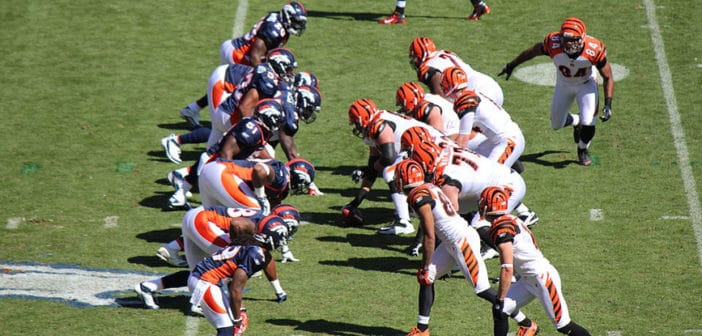 When former Broncos tight end Nate Jackson played in the NFL, he would visualize successful play when he was high on marijuana “and that carried over to when I was sober,” helping him to hone his craft.
When former Broncos tight end Nate Jackson played in the NFL, he would visualize successful play when he was high on marijuana “and that carried over to when I was sober,” helping him to hone his craft.
While playing from 2003 to 2008, Jackson chose to self-medicate with pot rather than risk addiction with opiate painkillers. “I consider it a performance-inspiring drug,” he said at a marijuana business conference, according to The Associated Press.
Now he believes the NFL should make it easier for other players to follow his example by removing marijuana from its list of banned substances in the near future. “It’s a good public relations move for the NFL to do this because they have a lot of former players who are hurting, who have a lot of cognitive issues, who have orthopedic issues, who have psychological problems, and it seems that marijuana helps with all of these things,” he said.
Jackson’s right that it’s time for the NFL to give marijuana the green light and stop punishing people for using it. Even so, I’m not sure that the use of pot by athletes—whether we’re talking recreational or medicinal—ought to be celebrated.
The Pot User’s Dilemma
Let’s start with what Jackson and I agree on: pot use is common and not everybody who smokes pot is an addict. In my opinion, recreational pot use is no worse and arguably better than alcohol. Just consider the statistics: nearly 88.2 million people die from alcohol-related causes annually, and 31 percent of all driving fatalities are the result of someone driving drunk. There’s not one pot-related fatality on record. As for prescription medication, which Jackson says he avoided during his playing career, it is responsible for nearly 44,000 fatal overdoses each year.
Pot’s medical benefits are undisputed. Marijuana stimulates appetite among patients with HIV/AIDS and other people who have trouble eating. It’s prescribed for people with MS and similar conditions. It’s said to relieve pain. I have friends who smoke pot for various medical reasons, such as insomnia and anxiety. It’s tricky in places where it’s illegal. It’s especially tricky when these friends want to call themselves sober. I’ve heard people share in meetings a dilemma similar to what Jackson describes: they prefer medicinal marijuana to prescription medication but fear that, by self-medicating, they’re compromising their sobriety—not to mention risking arrest. I believe that if you prefer pot to prescription medication for whatever you’ve got going on, you should be allowed to use it and not made to feel guilty, or arrested for it.
Pot Made Me Paranoid
So, yes, marijuana is a medicine. But it’s also true that it’s a drug. Whether legal or illegal, marijuana can be misused and abused. And in spite of what some people say, pot can be addictive.
It’s a ridiculous notion that pot is “performance-inspiring,” as Jackson suggests, and that’s really where he lost me. His comment that smoking pot helped him to envision success reminds me of my own misguided, alcoholic beliefs about booze and writing. The only thing that pot has ever inspired me to do was eat (and not because I had a medical condition that required this). Pot made me paranoid and I never really enjoyed it, even when I was a daily smoker. And yet, still I smoked. For me, pot’s side effects of social weirdness and depression far outweighed any benefits. When I was smoking pot, I certainly didn’t have a clear head. Anecdotal as well as scientific evidence agrees that “pot head” isn’t an expression that just comes from nowhere! Like all drugs, pot impacts your brain. Let’s not pretend it’s benign.
A Sport Built on Violence
Of course, the NFL’s problem isn’t pot. The real problem is, as Jackson says: players, current and retired, are hurting. The players themselves and even diehard fans are starting to agree football is an barbaric sport that people literally destroy themselves to play. San Francisco 49ers linebacker Chris Borland just retired after one season rather than risk further head injuries.
In a review of Steve Almond’s book, Against Football: A Reluctant Manifesto, NPR describes football as being “built on violence, racism, economic exploitation of poor kids, corrupt deal-making with local governments over stadiums, and a willingness to find it entertaining to watch people suffer brain damage.” According to the league itself, one in four NFL players is likely to end up with a serious head injury. To me, that’s a lot more serious than smoking pot.
Photo courtesy of Jeffrey Beall [CC BY-SA 3.0 (https://creativecommons.org/licenses/by-sa/3.0)], via Wikimedia Commons (resized and cropped)
Sponsored DISCLAIMER: This is a paid advertisement for California Behavioral Health, LLC, a CA licensed substance abuse treatment provider and not a service provided by The Fix. Calls to this number are answered by CBH, free and without obligation to the consumer. No one who answers the call receives a fee based upon the consumer’s choice to enter treatment. For additional info on other treatment providers and options visit www.samhsa.gov.




